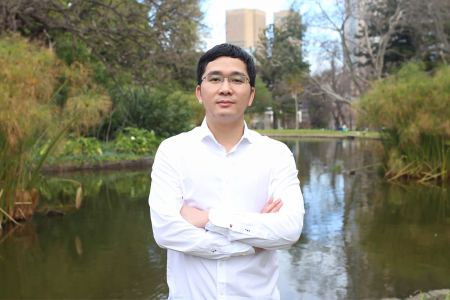
A new Charles Darwin University study aimed at highlighting the impacts of COVID-19 on tour operators has revealed that many operators lack strategic plans or activities for dealing with crisis events.
The survey results demonstrated that the common impacts of COVID-19 on operators include plummeting revenue, increased costs, and employee redundancy.
CDU researcher and Senior Lecturer in Business Dr Ninh Nguyen said the study's findings present an opportunity for tourism operators to more efficiently plan and create new ways of operating after COVID-19.
"The COVID-19 outbreak has challenged the global tourism economy," Dr Nguyen said.
"It is critical that the tourism sector is able to transform and become more resistant to future epidemics or pandemics, even after COVID-19 loses its relevance."
Dr Nguyen says that while tourism firms need to effectively address the uncertainties and potential opportunities associated with crises and pandemics, little research has been conducted to help operators respond to a pandemic.
"Many operators lack forward planning initiatives that might support them in dealing with crisis events as there's little research in this space.
"There is an urgent need for studies that shed light on how tourism operators strategically respond to a pandemic crisis like COVID-19."
Researchers obtained data from a recent survey initiated by the National Tourism Advisory Board and 32 interviews with managers of selected tourism operators in Vietnam, but the research is globally relevant.
The study aims to advance the knowledge and application of response-to-crisis strategies in tourism research, and its findings have practical implications for policymakers in times of exceptional crisis like the COVID-19 pandemic.
Dr Nguyen said the study found that the majority of tour operators concentrate on developing crisis-response strategies for the short and medium run rather than those for the long-term.
"The way most tourism operators have responded through COVID is to cut costs where they can to remain viable, which leads to job losses, some may have to shut down their operations completely or have managed to pivot, innovate and focus on exploring alternative sources of revenue, developing new services or marketing to new customers."
"The unpredictable and complicated nature of COVID-19 has caused some tourism businesses focusing on international tourism to exit the market and shutdown their operations completely, while others have been able to capitalise on domestic markets," he said.
"The findings highlight the importance of diversifying target markets, innovating products and services, and collaborating with other operators in the tourism sector to create safe and cheaper travel options and packages in response to a crisis," he said.
Dr Nguyen also said that their research was able to identify that financial assistance and stimulus by governments to support the tourism sector is critical for crisis response and recovery.
"The majority of operators surveyed expected to receive government support, which helps reduce or allow deferred payment of taxes, insurance premiums and other payables. They also asked for financial support in the form of government-guaranteed loans with low-interest rates."
The research is co-led by Dr Ninh Nguyen of CDU and Dr Binh Do of Thuongmai University, Vietnam.






